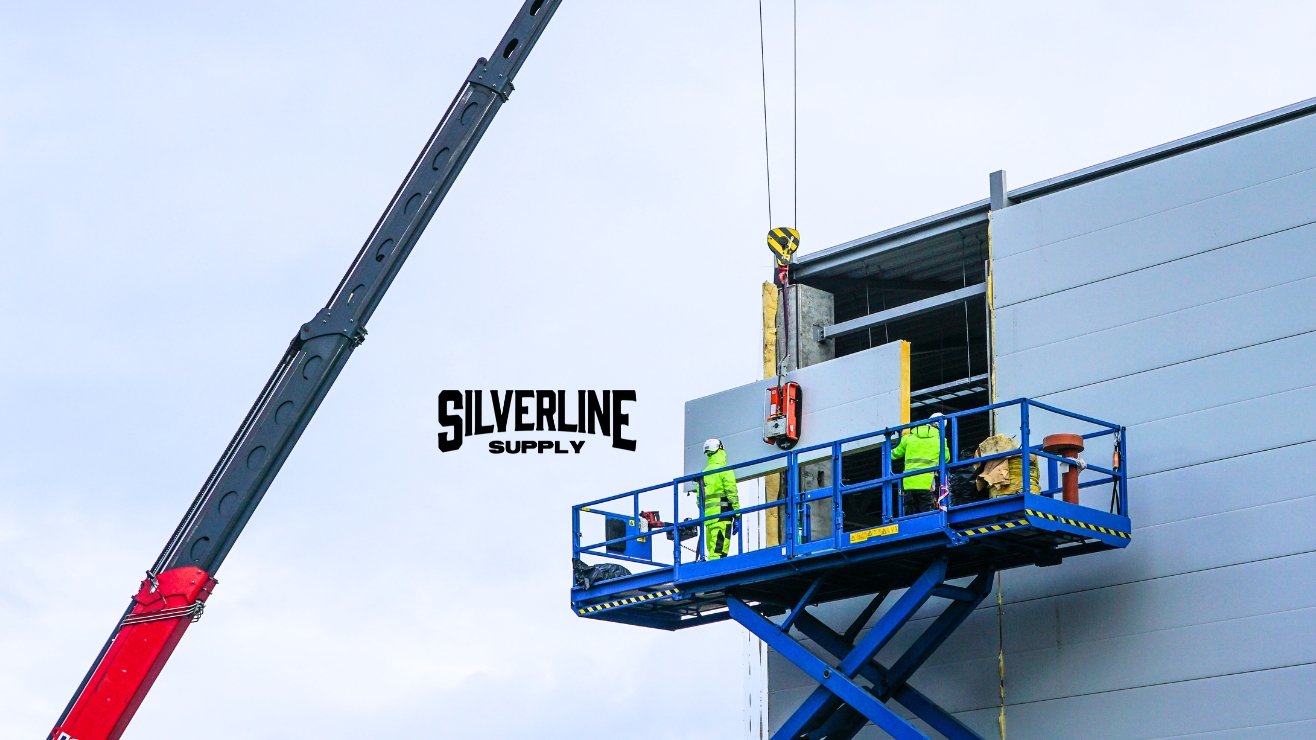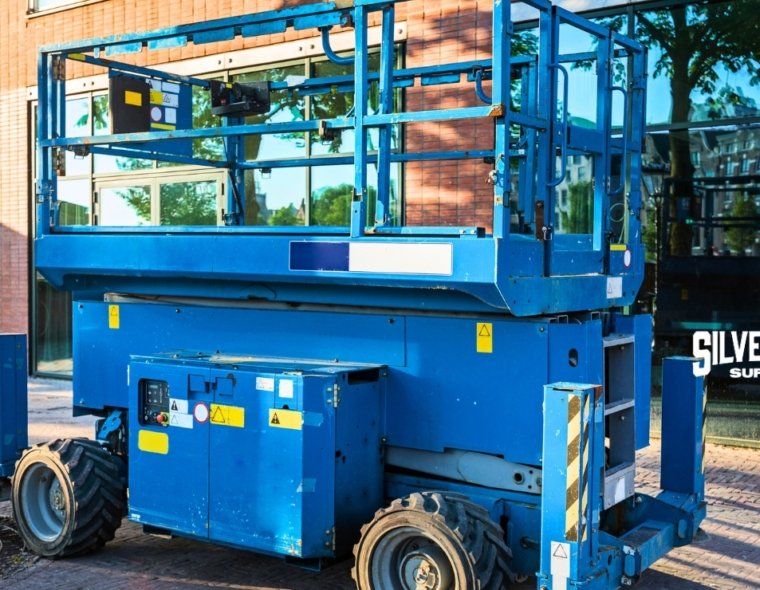When it comes to taking on large-scale construction projects or managing demanding tasks, having access to the right heavy machinery is essential for success. However, purchasing expensive equipment outright may not be the most practical or budget-friendly solution—especially if you’re working on short-term projects, seasonal work, or require specialized machines. This is where heavy equipment rental becomes an invaluable option. Renting allows you to access the latest, high-quality machinery without the financial burden or long-term commitment that comes with ownership.
At Silver Line Supply LLC, we specialize in providing contractors, builders, and businesses with reliable, flexible access to top-tier equipment, ensuring you have exactly what you need when you need it.
Our rental fleet includes everything from excavators and forklifts to backhoes, scissor lifts, and more. With our easy rental process, you can focus on getting the job done efficiently without worrying about the upkeep, storage, or depreciation of your machinery.
What to Expect
This comprehensive guide will walk you through everything you need to know about renting heavy equipment, whether you’re a seasoned pro or new to the process. We’ll cover how to prepare for your rental, what to consider when selecting the right machine, and how to ensure smooth operations on the job site.
Additionally, we’ll provide tips for maximizing cost-efficiency, from choosing the right attachments to scheduling delivery and pick-up at the most convenient times for your crew.
Whether you’re looking to tackle excavation, material handling, or site preparation, our goal at Silver Line Supply LLC is to support your project’s success by making heavy equipment rental a smooth and rewarding experience. You’ll get the flexibility, control, and productivity you need—without the hassle of ownership.
Why Choose Heavy Equipment Rental?
For many construction firms and contractors, renting heavy equipment provides several advantages over purchasing. When you rent heavy equipment, you:
- Save Money. Avoid the high upfront cost of buying machinery, as well as ongoing expenses like maintenance, repairs, and storage.
- Stay Flexible. Rent the specific type of equipment you need for each project, and return it when the job is done. This is particularly useful for specialized tasks.
- Access the Latest Model. With heavy equipment rental, you can use modern machinery outfitted with the latest technology, increasing efficiency and safety.
- Eliminate Depreciation Worries. As machinery ages, its value decreases. Renting helps you avoid the depreciation costs that come with ownership.
Renting heavy equipment allows businesses to stay nimble, using the right tools for the job without the long-term commitment or financial burden of owning large machinery.
Steps to Take Before Renting Heavy Equipment
Preparing for your heavy equipment rental can help you avoid unnecessary delays and unexpected costs. Here are key steps to ensure that everything goes smoothly before you rent heavy equipment.
1. Identify Your Project Needs
Before starting the rental process, it’s crucial to fully understand the needs of your project. Ask yourself:
- What type of equipment do I need? Different jobs require different machinery. For example, a skid steer loader might be perfect for tight spaces, while a large excavator is ideal for heavy digging tasks.
- How long will I need the equipment? Estimating the duration of your project will help you determine whether renting is the right option and avoid unnecessary rental costs.
- What terrain will the equipment operate on? Be sure to consider the environment where the machine will be used. Certain equipment is better suited for rough, uneven terrain, while others may perform best on smooth surfaces.
Matching the right equipment to your project ensures you’re not overspending or using the wrong machinery, both of which could lead to inefficiencies or safety hazards.
2. Evaluate Transportation and Delivery Options
You will need to decide how to get the equipment to your job site. At Silver Line Supply LLC, we offer both delivery services and the option for you to transport the equipment yourself.
- Delivery. For a hassle-free experience, our team can deliver the equipment directly to your site. This option ensures the equipment arrives in optimal condition and at the scheduled time.
- Pickup. If you choose to handle the transportation yourself, make sure you have the appropriate trailers and securing devices to move the equipment safely. You’ll also need to check that your vehicles can handle the weight and size of the machinery.
Deciding between delivery and self-transport depends on your resources and the complexity of the job. Either way, Silver Line Supply LLC is here to support you.
3. Review the Heavy Equipment Rental Contract
Before you sign a rental agreement, it’s essential to thoroughly review the terms of the heavy equipment rental contract. This document will outline key details such as:
- Rental Duration. Know exactly when your rental begins and ends, and what the policy is for extending the rental period if needed.
- Insurance Requirements. You’ll likely need to provide proof of insurance that covers the rented equipment. If your current insurance doesn’t cover rentals, ask your provider or inquire with Silver Line Supply LLC for recommended options.
- Damage Liability. Understand your responsibilities if the equipment is damaged during the rental period. Most contracts outline what counts as wear and tear versus damage caused by negligence.
Understanding your rental contract fully helps prevent surprises and ensures you’re clear about your obligations during the rental period.
Best Practices for a Successful Heavy Equipment Rental
Once you’ve secured your heavy equipment rental, you’ll want to ensure the machinery is used safely and efficiently throughout your project. Here are some best practices to follow:
1. Train Your Operators
Operating heavy machinery requires specific skills and certifications. If your team isn’t familiar with the equipment, it’s important to provide adequate training or hire a qualified operator.
Many accidents and breakdowns occur due to improper use of machinery, so investing time in training can save you from costly repairs and safety hazards.
2. Perform Daily Equipment Inspections
Before using the equipment each day, conduct a thorough inspection. Look for signs of damage, check fluid levels, and ensure all safety mechanisms are functioning properly. Reporting any issues early can help you avoid breakdowns and additional rental fees for repairs.
At Silver Line Supply LLC, our equipment is meticulously maintained, but routine checks during your rental period are critical for smooth operations.
3. Follow Safe Operating Guidelines
Heavy machinery can be dangerous if used incorrectly. Make sure to follow all manufacturer guidelines and safety instructions provided with the equipment. This includes adhering to weight limits, not overloading the machinery, and operating it on appropriate terrain.
If you’re unsure about any of the operating procedures, don’t hesitate to contact our team for assistance.
Managing the Costs of Heavy Equipment Rental
While heavy equipment rental is generally more affordable than purchasing, it’s still important to manage costs effectively to maximize your budget. Here’s how:
1. Rent Equipment Only When Needed
Avoid renting equipment too far in advance of your project start date. Ensure the machinery is on-site when you’re ready to use it to avoid paying for idle days. Planning your rental period carefully minimizes downtime and keeps costs in check.
2. Understand the Cost Structure
Different rental companies may have varying pricing models. Some charge by the day, week, or month, so choose a pricing structure that aligns with the length of your project. Be sure to ask about any potential additional fees, such as delivery charges or penalties for late returns.
3. Protect the Equipment to Avoid Extra Charges
As part of your heavy equipment rental contract, you are responsible for ensuring the equipment is not damaged due to misuse. Be sure to protect the machinery from weather conditions, vandalism, or accidents that could result in additional fees.
Most contracts will also include stipulations regarding cleaning the equipment before return, so make sure the machinery is in good condition to avoid extra cleaning fees.
Benefits of Partnering with Silver Line Supply LLC
At Silver Line Supply LLC, we prioritize customer satisfaction by offering a wide selection of well-maintained equipment for rent.
Our team is committed to helping you find the right machinery for your project, and we provide flexible rental terms to suit your needs.
What You Can Expect from Us:
- Diverse Inventory. From excavators to forklifts, we carry a broad range of heavy equipment, ensuring that you have access to the right machinery for the job.
- Reliable Service. Our team ensures every piece of equipment is inspected and maintained before delivery, so you can trust that it’s ready to perform.
- Flexible Terms. Whether you need short-term rental or extended contracts, we work with you to find rental options that fit your timeline and budget.
Conclusion
Renting heavy equipment from Silver Line Supply LLC is a cost-effective, flexible way to access the machinery you need for any project.
By preparing ahead of time, understanding the terms of your heavy equipment rental contract, and following best practices for safe and efficient operation, you can make the most of your rental and keep your project running smoothly.
Whether you’re managing a large-scale construction job or tackling a specialized task, Silver Line Supply LLC is your partner for heavy equipment rental.
Reach out today to learn more about how we can support your next project with our extensive selection of top-quality machinery.


